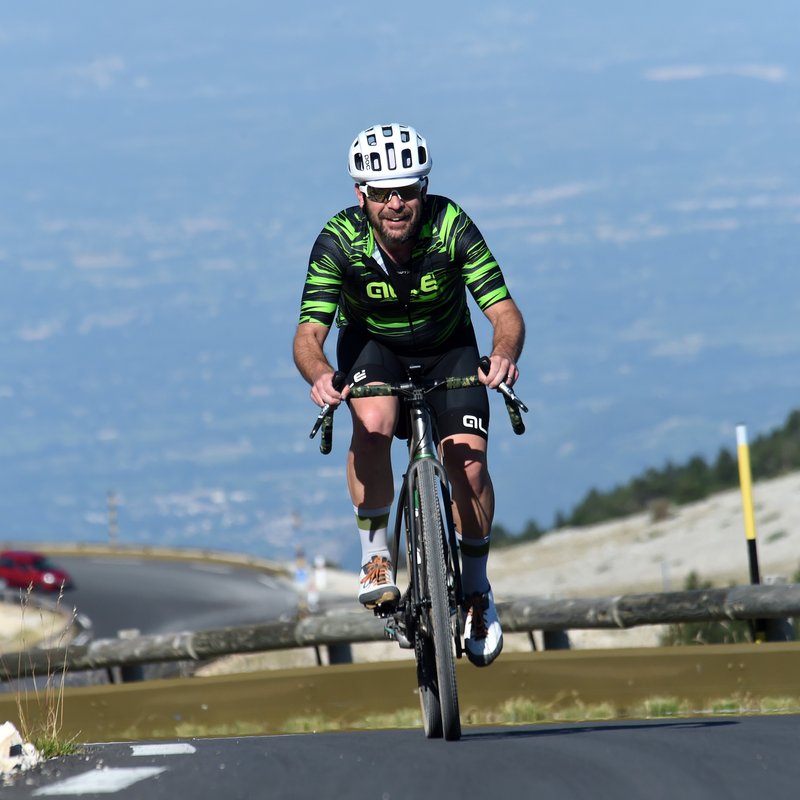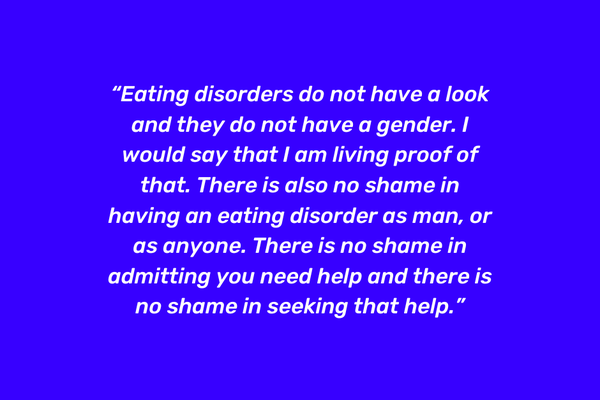I’m not ashamed to admit it. I’d always bought into the myth that eating disorders were something that teenage girls got, not something that men in their mid-40s suffered from, but my journey over the last two years has made me realise they can affect anyone at any age from any background.
I’ve had several bouts of depression over the years. I initially got into cycling as a hobby as a way of helping my mental health, but as someone who had always enjoyed playing competitive sport, it was inevitable that I soon started racing at an amateur level. As I got older, I qualified as a coach, and started leading rides for junior members of my cycling club to help them get into good habits; making sure they were appropriately dressed for the weather, and had adequate food with them to fuel their rides – to the point I would bring extra food with me to hand out to them if anyone was short.
In 2022 I set myself the goal of qualifying for the 2023 Amateur World Championships and dived into a comprehensive training plan. However, this coincided with a particularly stressful time at both work and a voluntary role I do. Everything felt out of my control, so I tried to control the one thing I still could – what I ate. I don’t think it will come as a surprise to many that disordered eating habits are prevalent in cycling even at an amateur level, where your performance is judged by your power/weight ratio, and you spend all your spare time in skin-tight aerodynamic cycling kit. Inevitably the hunger of under-fuelling my training gave way to binges, which were followed by hours-long training sessions to ‘punish’ myself for them, and thus the binge/purge cycles (no pun intended!) began.
Despite managing to successfully qualify, a couple of months before the event I knew I was struggling mentally. I was constantly irritable, especially when I wasn’t training, and the techniques I’d learnt over the years to help manage my depression weren’t working. But I still hadn’t made the link that it was my eating that was the problem – I was the fittest I’d ever been in my life and getting compliments from other riders about how ‘sharp’ I was looking.
I went to a psychologist and talked about how I felt, but because I never raised my eating, it didn’t address what was really going on. Inevitably it all caught up with me. I started failing to complete my training, my motivation dropped through the floor, I couldn’t sleep, and I came down with a chest infection two weeks before the World Championships. It went predictably badly, and I bombed in the biggest race of my life.
By chance, a couple of weeks later whilst moping through a back copy of a cycling magazine, I read an article about exercise bulimia and relative energy deficiency in sport (RED-S). Suddenly the penny dropped, and when I returned to my GP to discuss my depression treatment, I found myself blurting out that I thought I had an eating disorder. Admitting it to someone felt like an immediate release of pressure.
A referral to my surgery’s eating disorder specialist and a diagnosis followed. The fact that I spend so much time trying to tell the youngsters I coach about the importance of eating properly, and giving them advice on fuelling their rides, and yet I myself had been diagnosed with an eating disorder myself meant it really hit home how they can affect anyone.
A lot of my problems stemmed from body image issues, so for me an important part of dealing with the inevitable changes to my body as I recovered was reminding myself what it is capable of when properly fuelled. Naturally this came in the form of a cycling challenge! Whilst I took time away from racing, I set myself the target of a 300km ride from one side of the Scottish Borders to the other earlier this year. Happily, I’m pleased to say that it was completed (properly fuelled), but it was certainly a long day in the saddle!
Initially I was very selective about who I told about my diagnosis, limiting it to my immediate family and closest friends. Their support has been invaluable, as was taking a break from training plans and racing, which had definitely become a chore rather than something I looked forward to. More recently I have been honest with those who’ve asked why I took time away from the sport, which has prompted several to open up to me about their own struggles.
It’s not been an easy journey, and I know I haven’t completed it yet, but I’m back to enjoying both food and my hobby again and have a new-found respect for what my body can achieve when fuelled properly. Whilst I never planned on shouting from the rooftops about my diagnosis, I’d like to think that being willing to talk to others about what I went through will encourage them to discuss things when they know they are struggling.

If you've been affected by any of the issues raised in this story, or are concerned for yourself or a loved one, you can find support and guidance on the help pages of our website.
Help us change lives
Donate today to help us provide more vital support to people who are affected by eating disorders.
One Size Does Not Fit All - James’ Story
24 March 2025Eating disorders do not have a look and they do not have a gender. I would say that I am living proof of that.
